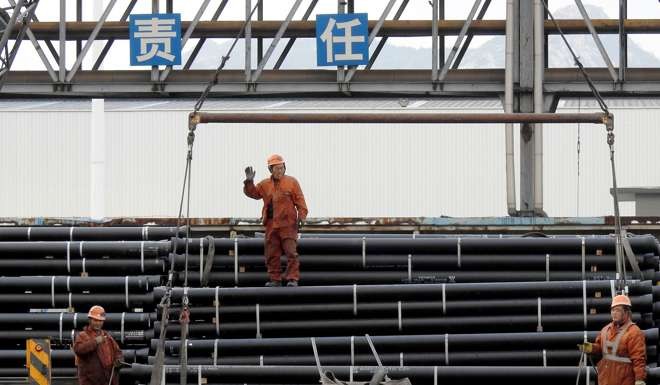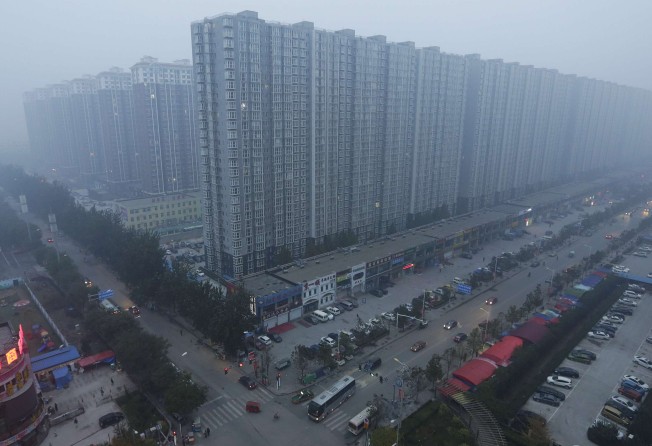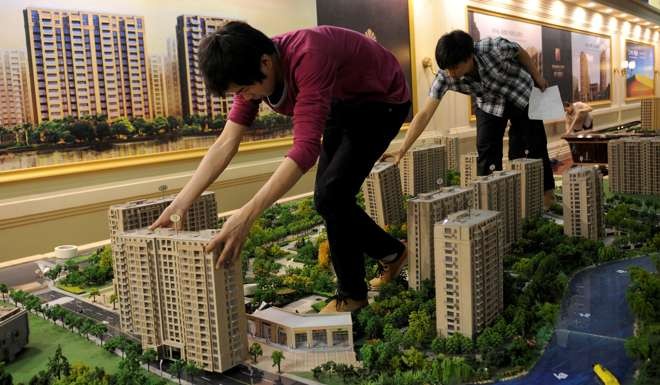
China’s economy stabilising but slowing property market and investment still pose challenges

China’s economy continued to show signs of stabilisation last month with the help of government-led infrastructure investment and an earlier credit boom, offering the post-Trump world economy a sense of predictability.
But a cooling property market and sluggish private investment is stillcasting a shadow across the nation’s economic prospects.
While Donald Trump, the US president-elect, is planning to roll out a US$1 trillion infrastructure package to bolster growth in the world’s No 1 economy, the Chinese government has been relying on infrastructure spending to aid growth for years.
Infrastructure investment on the mainland, which now accounts for one-fifth of the total investment, grew 19.4 per cent in the first 10 months of this year to 9.5 trillion yuan, or about US$1.4 trillion.
“The Trump win creates more uncertainty and challenges for China ... but at least the reasonable current growth momentum gives policy some two-way leeway,” Louis Kuijs, head of Asia research at Oxford Economics, wrote in a research note.
It is now almost certain that the Chinese government can achieve a growth rate higher than the 6.5 per cent for 2016. Together with an improved US economic momentum, the world’s major economies may have a better 2017 than 2016, in terms of growth.
Moody’s economists led by Madhavi Bokil wrote in a note published on Monday that growth at the G20, the world’s 20 biggest economies, will accelerate to about 3 per cent in the next two years from an estimated 2.6 per cent in 2016 “due to faster growth in the US and major emerging market countries”.
According to China’s economic data released on Monday, the country’sfixed-asset investment, a key driver of economic growth, rose 8.3 per cent in the first 10 months from a year earlier. Industrial output rose 6.1 per cent last month from a year earlier, while October social retail sales grew disappointingly at 10.0 per cent last month.

“We expect growth to hold up well for another quarter or two,” Julian Evans-Pritchard, China economist of Capital Economics, wrote in a research note.
We expect growth to hold up well for another quarter or two. However ... the drivers of the recent recovery look set to fizzle out early next year
“However, with credit growth now slowing and the property market beginning to cool, the drivers of the recent recovery look set to fizzle out early next year.”
Amid an overall stable picture, private investment expanded only 2.9 per cent in the first 10 months.
“The returns from the real economy [the part of the economy involved in producing goods and services opposed to the part involved in buying and selling on the markets] remain unattractive to private investors,” Zhang Yiping, a macro analyst at China Merchants Securities said.
“Private investment may improve slightly next year with the kick-off of public-private partnership projects, but it will largely stay at a low level.”
Output of crude steel and cement, two mainstays of the construction industry, rose 4 per cent and 3 per cent year-on-year respectively in October, despite Beijing’s repeated pledge to cut capacity.
Property investment growth over the January-October period accelerated 0.8 percentage points to 6.6 per cent compared with the January-September growth of 5.8 per cent.

However, land area purchases were still 5.5 per cent lower that a year ago after more than 20 cities announced tightening measures to curb home purchases and property speculation, which are likely to hit investment.
Larry Hu, head of China economics at Macquarie Securities in Hong Kong, noted that the property sector was cooling after the recent tightening measures.
“Overall, the economy is likely to slow again early next year,” Hu said.
China has tried to downplay the importance of growth targets since last year as it eyes structural adjustment and an economic upgrade.
But medium growth could win more time for its efforts to establish new growth momentum, which could take years.
China has vowed to shift its decades-old investment led growth model to one driven by consumption, which it believes can be more sustainable in the long run. It is trying to sharpen its corporate competitiveness through innovation, foster newly rising industries and seek to upgrade its traditional industries during the process.
Gross domestic product grew 6.7 per cent in the first three quarters of 2016, still higher than the government floor of 6.5 per cent.
The World Bank forecast growth of 6.5 per cent in 2017 and 6.3 per cent in 2018.